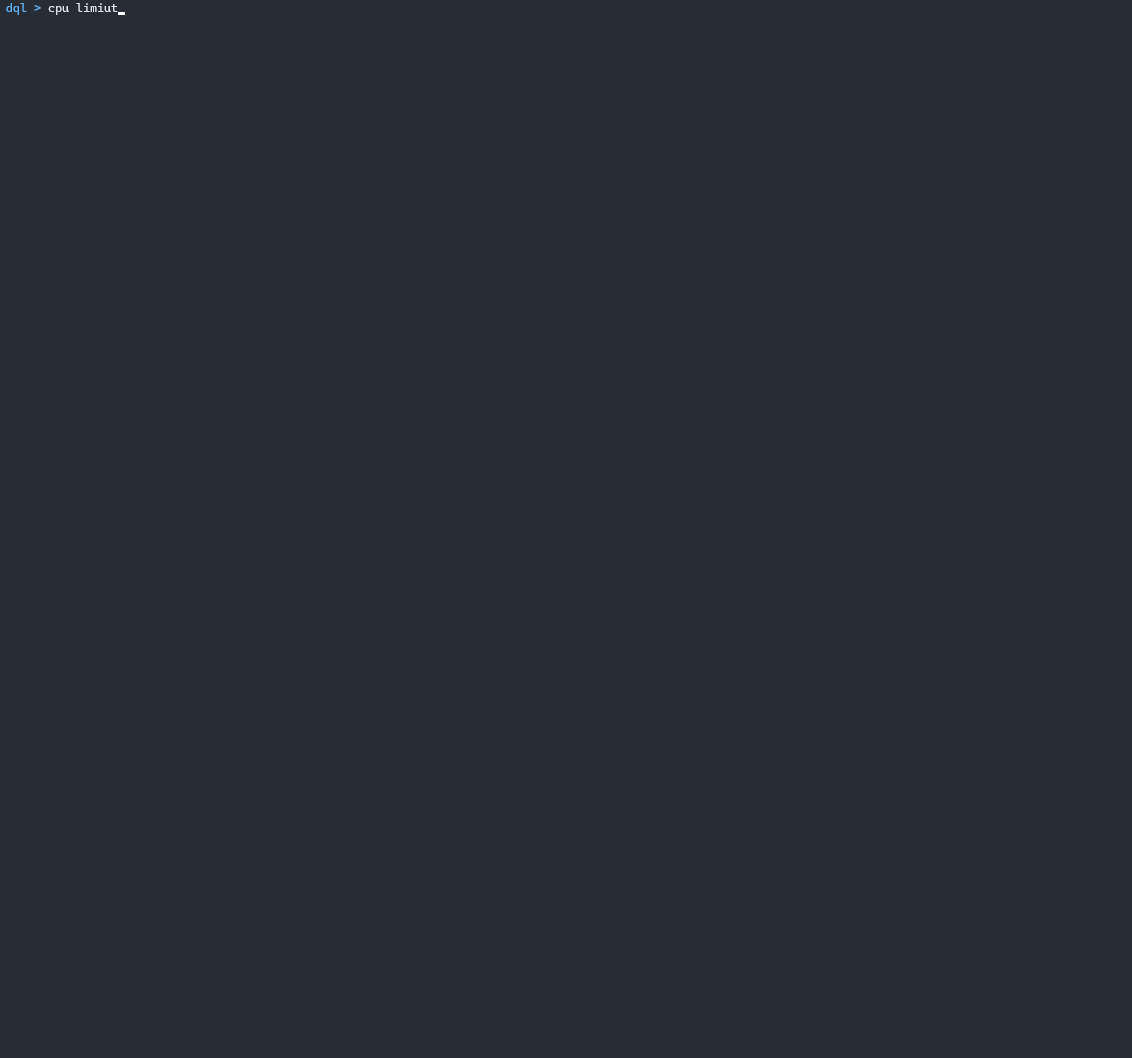Query Data Through DQL¶
DataKit supports interactive execution of DQL queries. In interactive mode, DataKit comes with statement completion function:
More command-line parameter help is available through DataKit help dql.
Tips:
- Enter
echo_explainto see the back-end query statement - To avoid displaying too many
niluery results, you can switch it throughdisable_nil/enable_nil. - Support fuzzy search of query statement. For example,
echo_explainonly needs to inputechoorexpto pop up a prompt, Drop-down prompt can be selected through Tab - DataKit automatically saves the previous DQL query history (up to 5000 queries), which can be selected by the up and down arrow keys
Note: Under Windows, execute
datakit dqlin Powershell.
Execute DQL query¶
With regard to DQL queries, DataKit supports the ability to run a single DQL statement:
# Execute one query statement at a time
datakit dql --run 'cpu limit 1'
# Write the execution results to the CSV file
datakit dql --run 'O::HOST:(os, message)' --csv="path/to/your.csv"
# Force overwrite of existing CSV files
datakit dql --run 'O::HOST:(os, message)' --csv /path/to/xxx.csv --force
# When the result is written into CSV, the query result is also displayed at the terminal
datakit dql --run 'O::HOST:(os, message)' --csv="path/to/your.csv" --vvv
Example of exported CSV file style:
name,active,available,available_percent,free,host,time
mem,2016870400,2079637504,24.210166931152344,80498688,achen.local,1635242524385
mem,2007961600,2032476160,23.661136627197266,30900224,achen.local,1635242534385
mem,2014437376,2077097984,24.18060302734375,73502720,achen.local,1635242544382
Note:
- The first column is the measurement name of the query.
- The following columns are the data corresponding to the collector.
- When the field is empty, the corresponding column is also empty.
DQL Query Leading to JSON Result¶
Output results in JSON, but there is no statistics in JSON mode, such as the number of rows returned and time consumption (to ensure that JSON can be parsed directly).
datakit dql --run 'O::HOST:(os, message)' --json
# Automatically do json beautification if the field value is a json string (note: in json mode (that is,--json), the `--auto-json` option is invalid).
datakit dql --run 'O::HOST:(os, message)' --auto-json
-----------------[ r1.HOST.s1 ]-----------------
message ----- json ----- # JSON is clearly marked at the beginning, where message is the field name.
{
"host": {
"meta": {
"host_name": "www",
.... # Omit long text here
"config": {
"ip": "10.100.64.120",
"enable_dca": false,
"http_listen": "localhost:9529",
"api_token": "tkn_f2b9920f05d84d6bb5b14d9d39db1dd3"
}
}
----- end of json ----- # There is a clear sign at the end of JSON
os 'darwin'
time 2021-09-13 16:56:22 +0800 CST
---------
8 rows, 1 series, cost 4ms
Query Data for a Specific Workspace¶
Query the data of other workspaces by specifying different Token:
